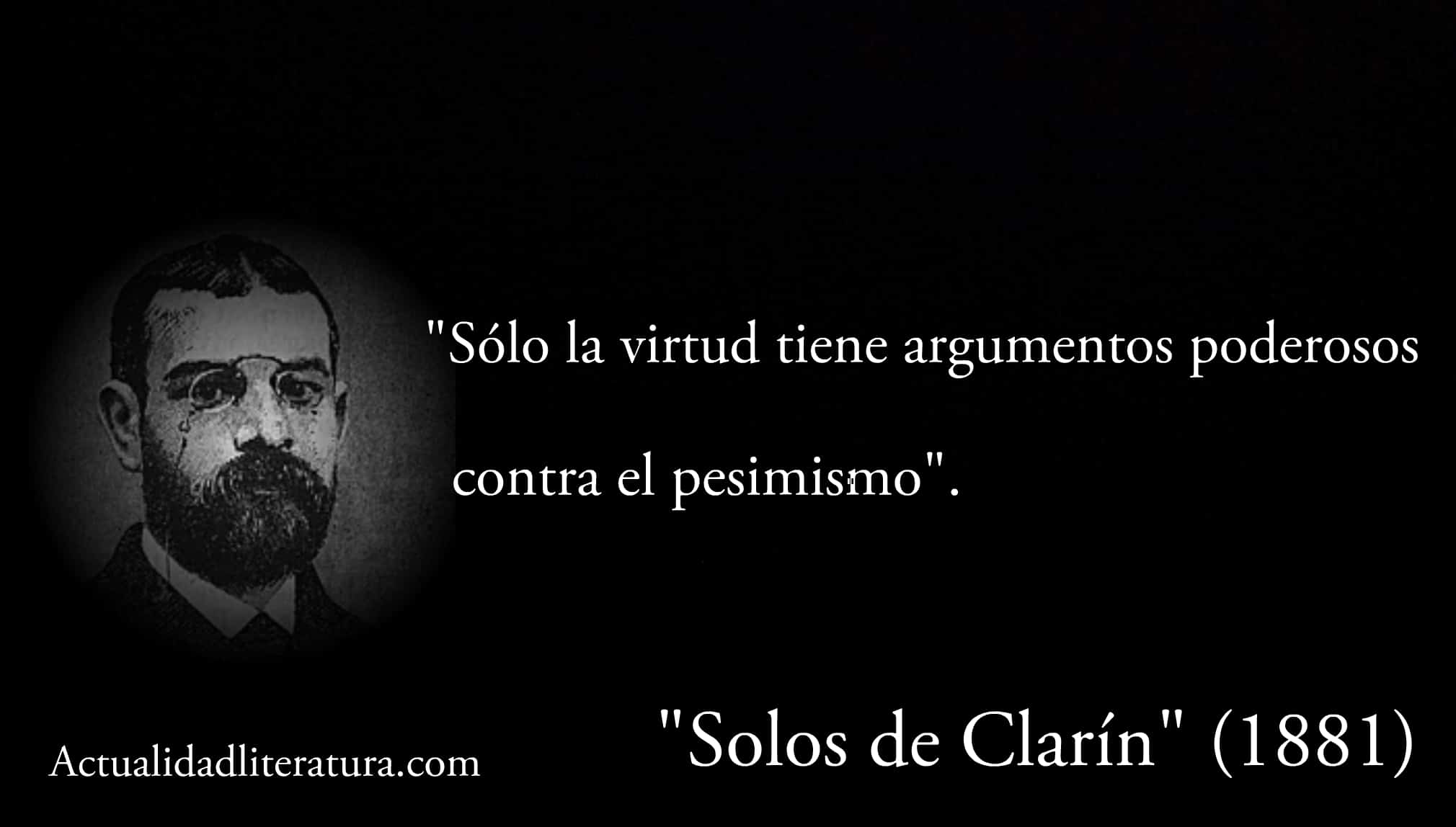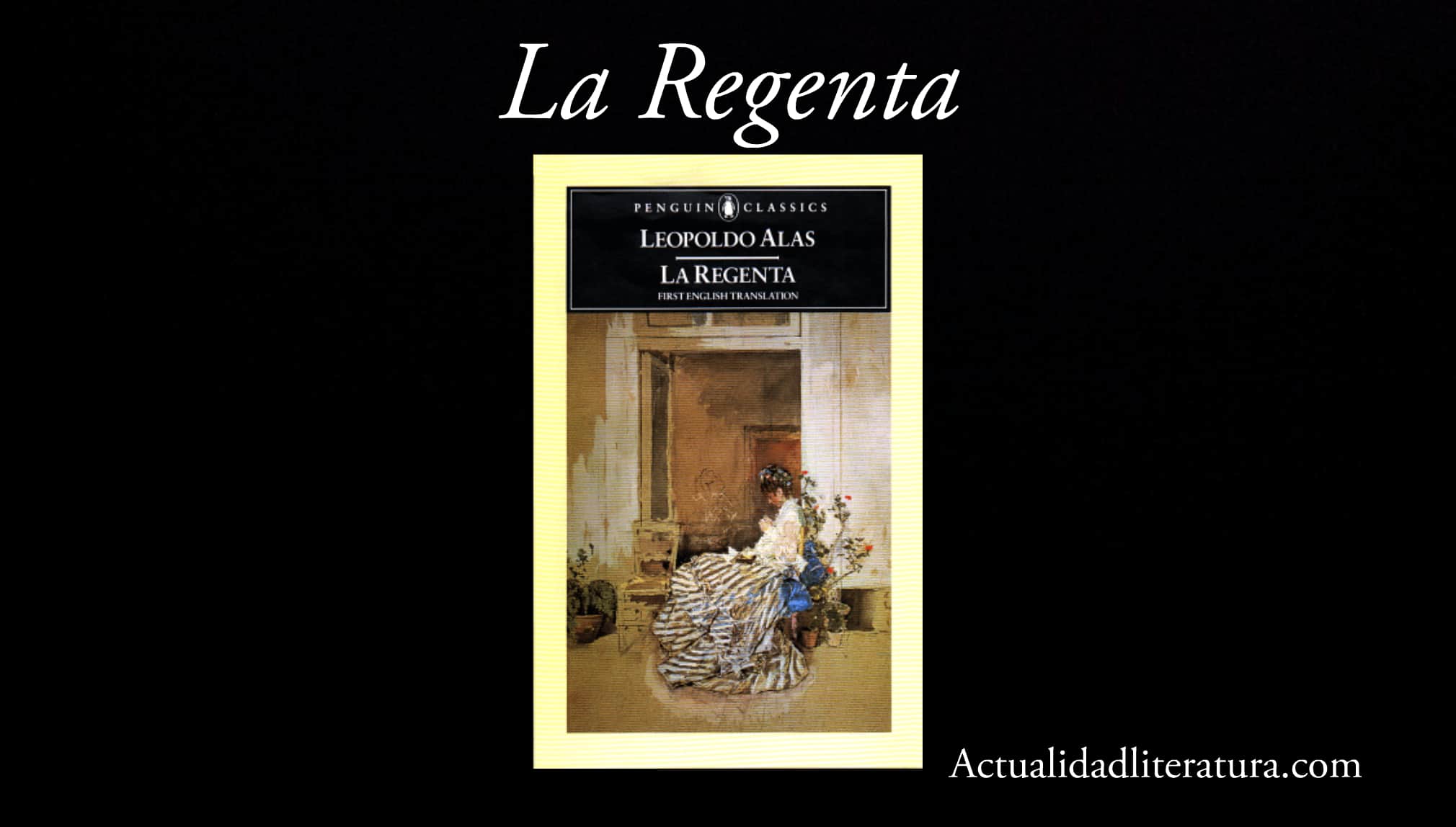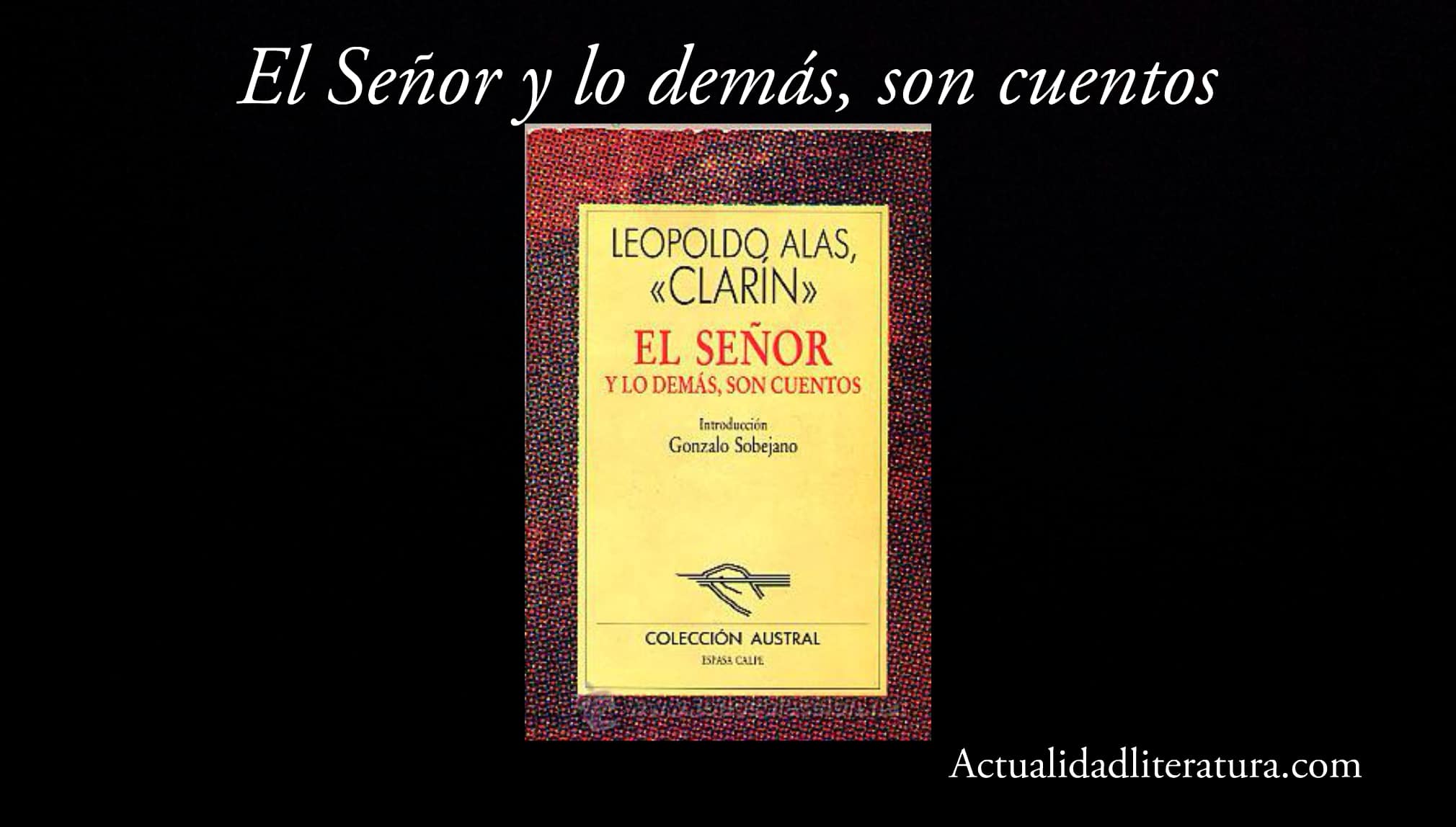
Phrase by Leopoldo Alas.
Leopoldo Alas, better known by his alias, Clarín, was a Spanish writer with a very vast and resource-rich work. Most of the academics coincide in placing their literary creation at the height of the illustrious Benito Pérez Galdós. In fact, The Regenta (1885), is considered one of the most significant novels of the Spanish literature of the XNUMXth century.
Additionally, Clarín was a prominent journalist, jurist, and critic on issues related to politics, religion, and literary theory. Among his articles and essays, he highlights his dedication to the socio-political issues of his time and the influence of Krausist idealism on his philosophical thought. Therefore, to understand the majesty of this intellectual, a comprehensive approach is necessary.
Biography
Birth and childhood
Leopoldo Enrique García-Alas y Ureña was born in Zamora, Spain, on April 25, 1852. At the time of his birth, his father —Genaro García-Alas— served as governor of the city. Nevertheless, the Asturian roots of his ancestors (especially those of his mother, Leonora) greatly influenced his future creations.
At the age of seven he was enrolled in the Jesuit College of the San Marcos Convent in León. There, little Leopoldo stood out for his good grades, discipline and attachment to faith, to the point of being considered a model student. Meanwhile, he developed his love for letters during his stays in the family home in Oviedo.
A precocious boy
The still pre-adolescent Leopoldo had already been able to read authors of the magnitude of Cervantes or Fray Luis de León. Its degree of precocity was such that with only eleven years his admitted in the preparatory chairs of the University of Oviedo. Where he received instruction in arithmetic, Christian doctrine, ethics, philosophy, Latin, and natural sciences.
Likewise, in that house of studies he made friends with future writers such as Tomás Tuero, Pío Rubín and Armando Palacio Valdés. In 1869 he received a bachelor's degree. Two years later he moved to Madrid in order to obtain a doctorate as a jurist. In the capital he met again with his friends from Oviedo and began to frequent the gathering of the Bilis Club.
Approach to Krausism
Garcia-Alas learned the precepts of Krausism and secular liberalism while completing his doctorate thanks to the chairs of Nicolás Salmerón and Adolfo Camus. In turn, the latter were prominent Krausists and disciples of the philosopher Julián Sanz del Río, who laid the ideological bases for the creation of the Institución Libre de Enseñanza.
First journalistic works
Along with his academic obligations, the young Leopoldo served as a contributor to the newspaper Solfeggio, founded and directed by Antonio Pérez Sánchez. This newspaper, founded in 1875, emerged very discreetly as a mouthpiece for republicanism. A year earlier, the First Republic of Spain had fallen after the coup of Manuel Pavía, with which the Monarchical Restoration began.
The director Solfeggio he urged all his editors to use the name of a musical instrument. For this reason, Leopoldo García-Alas began to sign under the pseudonym "Clarín" his column entitled “El Azotacalles de Madrid”. In it, he wrote poetry along with political criticisms that became quite controversial, as he mercilessly attacked the new ruling elite.
Doctorate in Civil and Canon Law
In 1876, Clarín wrote his first stories for the Asturias Magazine, directed by another of his close friends, Félix Aramburu. Two years later the only book with his real name appeared: his doctoral thesis entitled Law and morality. However, his academic merits were not enough to become the holder of a chair at the University of Salamanca.
The main obstacle to his teaching aspirations was embodied by the Count of Toreno, once the target of harsh criticism from Clarín and Minister of Public Instruction at that time. Anyway, the University of Zaragoza appointed him Professor of Political Economy and Statistics in 1882. That same year - August 29 - she married Onofre García-Argüelles.
The professor
In 1883, Clarín received by Royal Order the chair of Roman Law at the University of Oviedo. In his teaching work he distinguished himself by very scrupulous evaluative strategies and pedagogical methods whose main task was to induce analysis rather than memorization. Despite being very strict, he aroused great admiration among his students and colleagues.
Consolidation as the greatest critic of his time
By this time, he was already highly respected as a political analyst and literary critic. Clarín's writings were characterized by their sharpness, which made them very popular (at the same time that they increased their list of enemies). Almost all his articles were published in media such as The Impartial, Comic Madrid y Illustration, among others.
Meanwhile, in 1884 the first volume of The Regenta, his masterpiece (the second volume was released the following year). Thanks to his enormous capacity for work, he was able to combine his teaching work alongside his newspaper articles. plus the elaboration of stories and novels. In total, Clarín published more than two thousand opinion pieces until the end of his life.
Last years
During the 1890s, Clarín underwent a spiritual and personality transformation. Furthermore, he did not fully identify himself with any of the social classes in Spain at that time. Of course, this circumstance did not stop his work, for which, he continued his literary creation through various stories and even a theatrical work, Teresa (It resulted in a resounding failure).
With the arrival of the XNUMXth century, Clarín agreed to make a translation that took him months -Workby Émile Zola — even as the symptoms of her illness worsened. Finally, the diagnosis was not encouraging: intestinal tuberculosis in an advanced stage (incurable at that time). In consecuense, Leopoldo Alas died in Oviedo on June 13, 1901; he was 49 years old.
Construction
Novels

The Regent.
You can buy the novel here: No products found.
La Regent (1884-1885)
Clarín's most renowned work is very extensive, filled with various planes and complementary characters. It has a narrative based on the flow of the protagonist's memories, where adultery is the central theme. Therefore, it is compared with works such as Madame Bovary, by Flaubert, Anna Karenina, from Tolstoï, Or cousin Basilio, by Eça de Queiroz or The conquete of Plassansby Zola.
On the other hand, the description of the provincial environment is very detailed, with evident features of naturalism and a self-conscious novel. In addition, Clarín managed to reflect his interest in ethical issues (krausistas). At the same time, readers fully perceive the feelings of the characters and the characteristics of the society of that time.
Other novels by Clarín
- Cuesta abajo (1890-1891).
- Pelayo's hug (1889)
- His only son (1890). It was his longest novel.
Compilations of political, artistic and literary criticism
- Clarín Solos (1881)
- Literature in 1881 (1882)
- Lost sermon (1885)
- New campaign (1887)
- Essays and magazines (1892)
- Small talk (1894)
Tales

The Lord and the rest are stories.
You can buy the book here: The Lord and the rest are stories
- Goodbye, Lamb !; Goodbye, Cordera!.
- Love'è furbo.
- Burgundy.
- Moral tales.
- Crow.
- From the Commission.
- Double via.
- Doctor Angelicus.
- Don Paco from the packaging.
- Mrs. Berta.
- Two wise men.
- The cough duo.
- The rooster of Socrates.
- The Lord and the rest are stories.
- Dr. Pértinax.
- The book and the widow.
- The older bear.
- The priest's hat.
- On the train.
- At the drugstore.
- Medal… small dog.
- Pipe.
- Trickery.
- Drum and bagpipes.
- Teresa.
- A candidate.
- A returnee.
- A vote.
Gracious explanation, sublime article. The great work of searching and writing this page is necessary.
-Gustavo Woltmann.